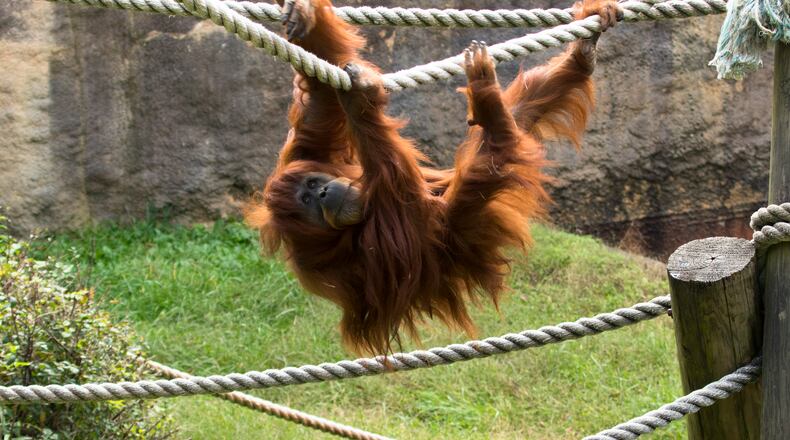Biji was a senior citizen with aches and pains like any other, but unlike some codgers, she did something about it.
Participating in her own health care by volunteering her arm when it was time to have a blood sample drawn, she helped Zoo Atlanta’s veterinarians discover, back in 2014, that she was dealing with kidney disease.
That cooperative attitude allowed caregivers to design a special regimen that minimized the effects of her kidney damage, and allowed Biji to live to the advanced age of 52, which, among orangutans, is a very senior status.
The knowledge gained from this treatment program also helped other great apes in human care around the country, according to Sam Rivera, vice president of animal health at Zoo Atlanta.
Credit: Zoo Atlanta
Credit: Zoo Atlanta
“Biji was the ultimate incarnation of the intellect, resourcefulness and adaptability of orangutans,” said Jennifer Mickelberg, vice president of collections and conservation, in a statement. “Beneath that surface, she was a huge personality with a goofy side she only showed to those who knew her best.”
As Biji’s health declined, the veterinary staff made the decision to euthanize the ape Thursday. Her body will be transported to the University of Georgia Zoo and Exotic Animal Pathology Service in the College of Veterinary Medicine for a necropsy.
Biji came to Zoo Atlanta in 1988 with a group of orangutans from Emory University’s Yerkes National Primate Research Center. “She was a founder of what is now our Great Ape program here at the zoo, which is internationally known,” said zoo spokesperson Rachel Davis.
Like most adult orangutans, Biji was a solitary creature. She lived alone, and enjoyed her hobbies, one of which was weaving. That instinctive behavior probably extended from the fact that orangutans in the wild build elaborate nests for themselves, sometimes building a new nest every evening.
Zoo Atlanta has one of North America’s largest collections of orangutans, with both Bornean and Sumatran species represented. The great apes are critically endangered, mostly by habitat loss caused by commercial farms producing palm oil.
About the Author
Keep Reading
The Latest
Featured




